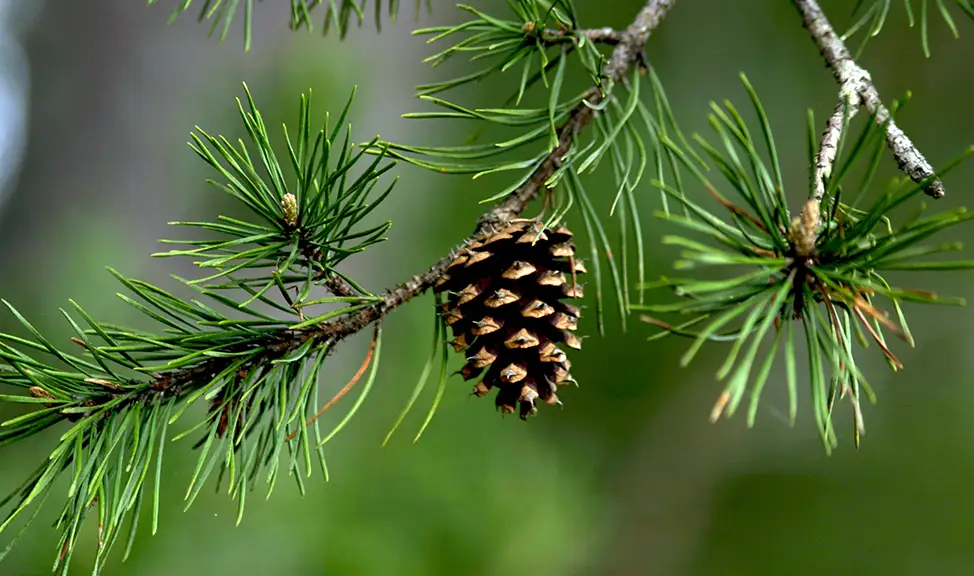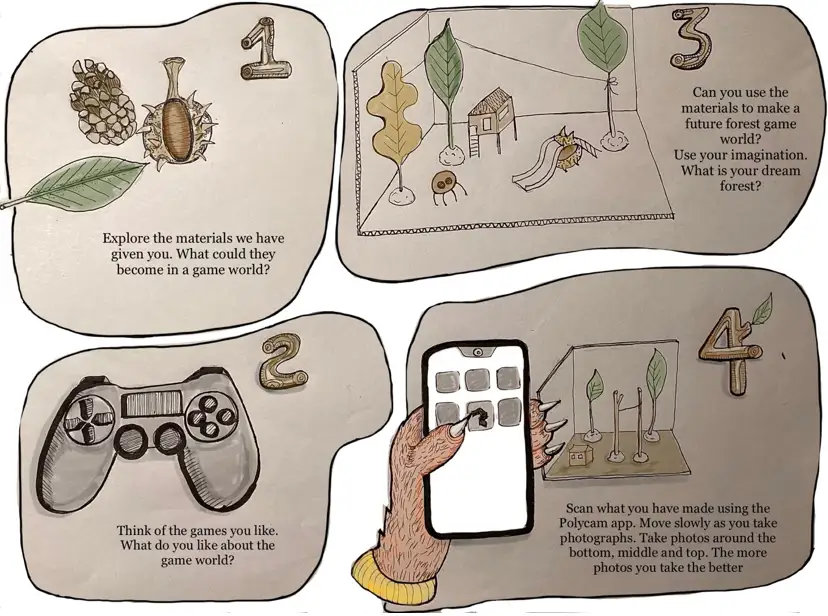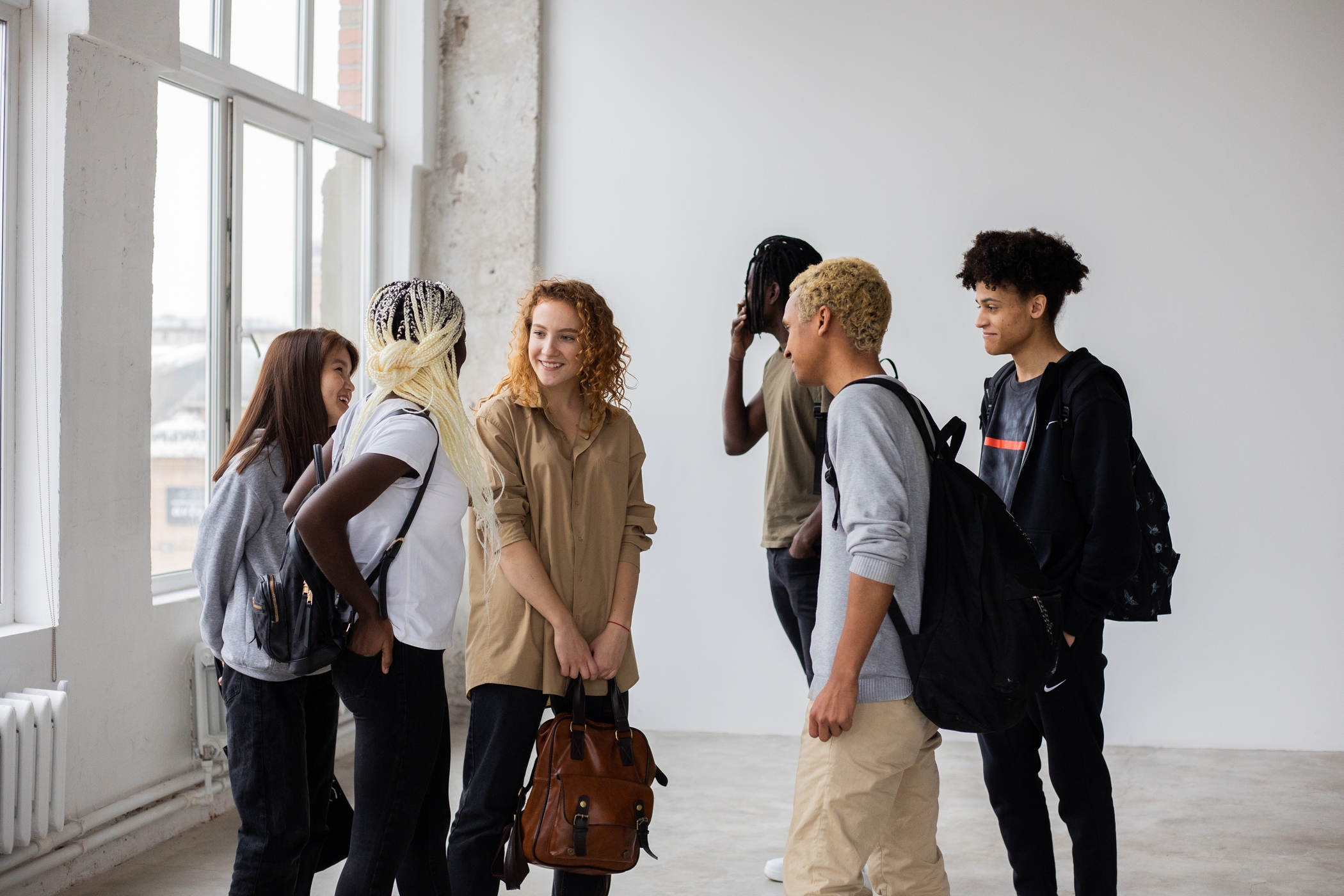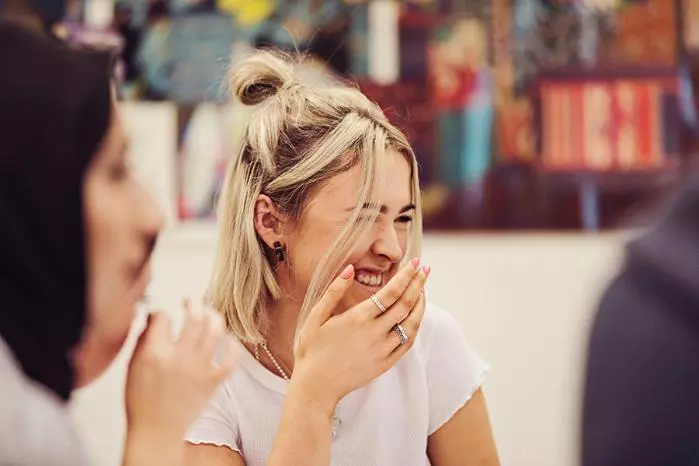

Graphical session plan for Encounter 2: World building (Dylan Yamada-Rice)
It is mid-January and the project team is preparing for the first substantive encounter for Digital Voices, where the children at both schools will be exploring the different types of worlds that may make up the game. Games design specialist Dylan has created a session plan that is perhaps somewhat different to what is typically used in the classroom; her creative and visual approach offers something that hopefully will make both the children and their teachers curious and excited about what will be happening.
We have been busy ordering boxes and boxes of craft materials to enable the children to build analogue models, and to sketch out their ideas in their project notebooks. Building models which we then digitise using the excellent Polycam app enables these ideas to be captured in a way that can inform the subsequent game design. The project team had some fun homework over the Christmas festive period having a go at model-making and digitising their own ideas for potential Treescape game worlds to learn best practice before the encounter sessions with the children.
This opens up a fundamental question that is often asked of us: “How can you co-design and develop a game with children that actually works?”. In a project defined by hearing and listening to the voices of children and young people, enabling true co-production is a key issue. Often, what actually happens is the adults define the boundaries and offer suggestions of what could/should happen, which are then offered to the children to consider or reflect upon: think of the number of questionnaires and surveys used to gather the opinions of children. Do these really enable children to say what they feel, or do they end up reflecting the views and preconceptions of the people designing the survey?
3D digital model created by a member of the project team, and digitised using Polycam
Throughout the companion Voices of the Future project, those of us working on both projects (Khawla, Ian, Johan and Simon) as well as our partners at The Mersey Forest have learned a lot from the approach of Prof. Kate Pahl and others. True co-production requires the adults to step back so that the children control the spaces and ideas. This means letting go, and being prepared for themes, activities and outcomes to be emergent, rather than directed.
By offering a loose structure, such as Dylan’s graphical lesson plan, but by not directing or contextualising those activities, hopefully we generate an environment where the children can let their own thoughts and imagination roam free. It means that we can gather the children’s dreams and imagining of the worlds that they would like to see and play in. The challenge then for the project team is to use as many of these ideas to inform and develop the game that represents their Treescape Game Worlds.
want to find out more about our courses?
If you have a curiosity about the natural world, wish to pursue a career in science, or spend your future working in the great outdoors - we have some ideal course options to get you started.


.jpg)

